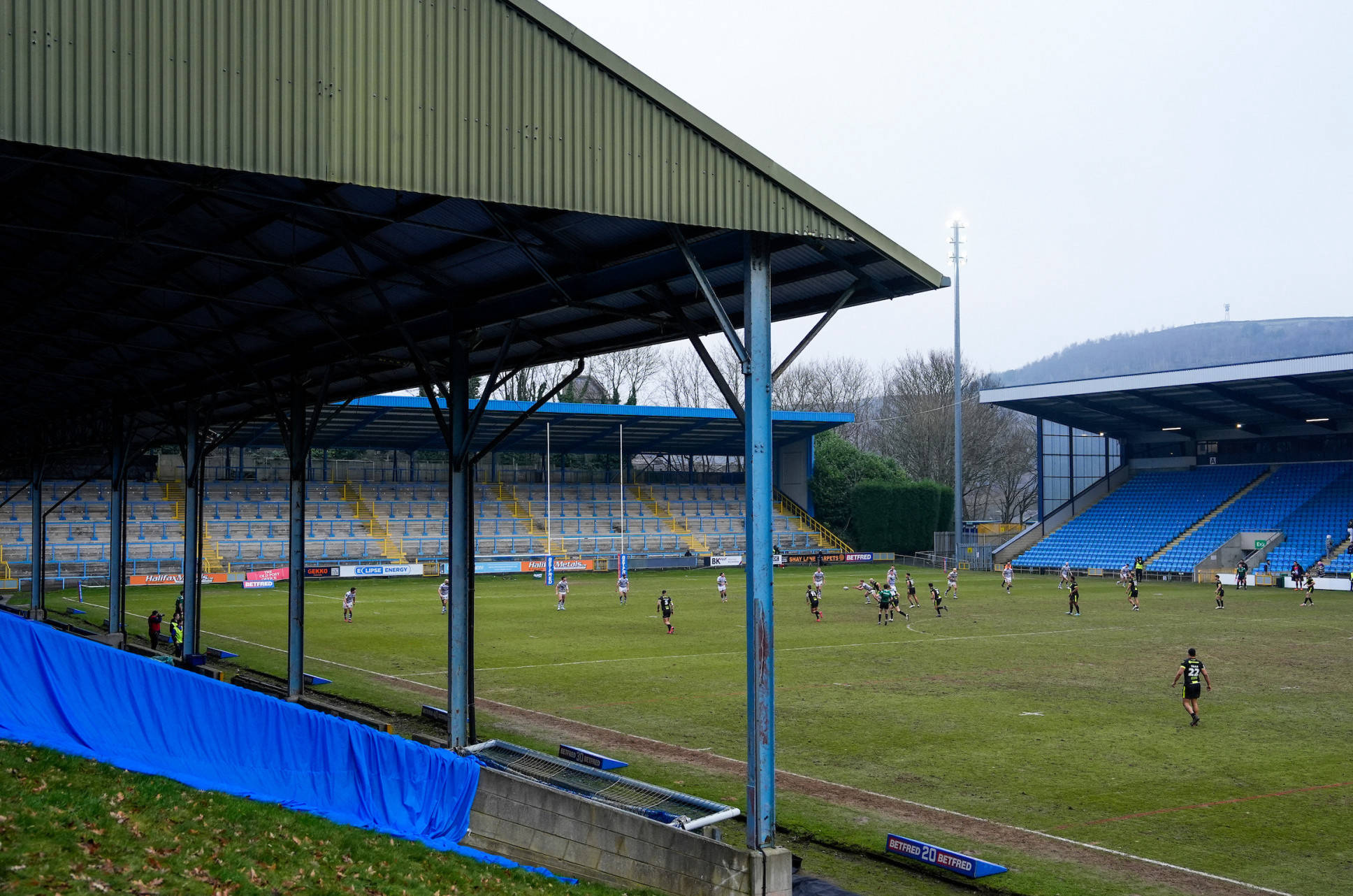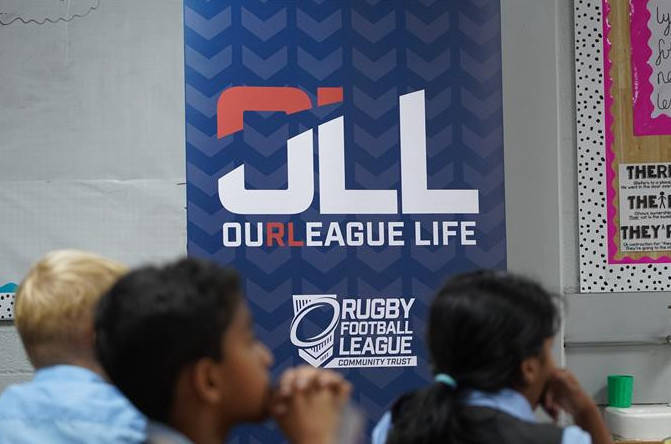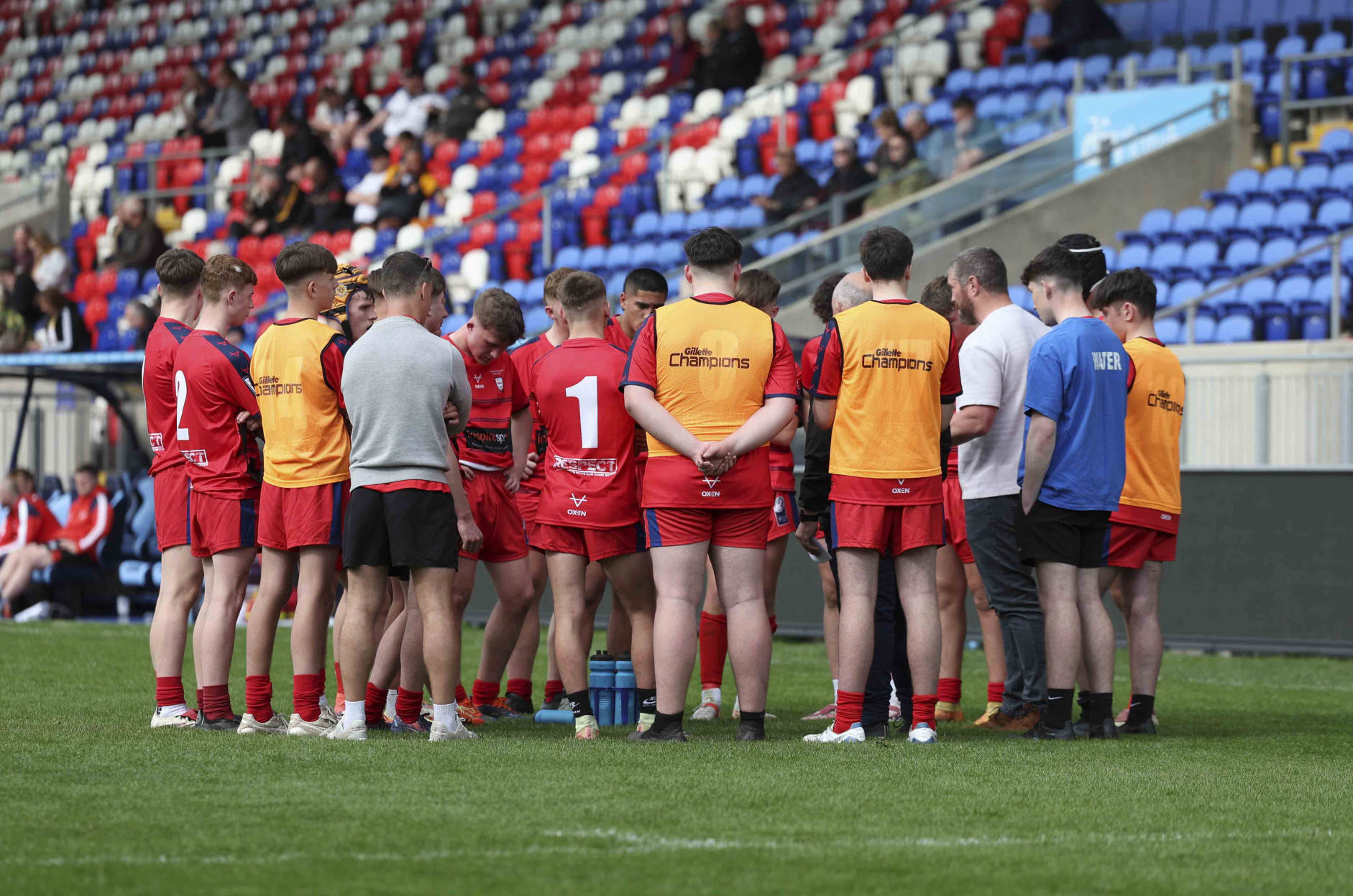
65-year-old Paul Field from Halifax has been playing and refereeing Masters Rugby League since it first came to the UK from New Zealand in April 2008.
He was invited by the RFL to join the Masters Management Group (MMG) in 2009 as a volunteer to help grow Master Rugby League in the UK. In 2010 he put together a refereeing course which he has delivered all over the country, as well as to Masters in France, Canada and USA.
He recently stepped down from his role with the MMG, though he will remain involved in Masters Rugby League as a referee and a player.
Alongside our partners at ACME Whistles, we were able to catch up with Paul to find out about his rugby career so far and discover more about the social game of Masters Rugby League.
“Masters coming to the UK was spurred on by the Australians coming over on tour and I was fortunate enough to play against them for Great Britain,” he said.
“After playing open age rugby league for 32 seasons and playing Masters for four months I snapped my Achilles. I wanted to go on tour to Australia with the Great Britain Masters team in 2009 so I had the Achilles operated on, had some rehab and got fit again through refereeing.”
While Masters rugby is still classed as rugby league, there are some differences, mainly that it’s age limited. Men have to be aged 35 or over to play and for women, the starting age is 30.
It is the only form of rugby league that is non-competitive and all games end in a nil-nil draw.
“The point of it is for everyone to enjoy themselves. It is a very sociable sport,” Paul explains.
“The game itself is semi contact and lasts 50 minutes. The age groups, identified by short colour, are set so that as you get older there is less and less contact.
“We don’t have leagues; we don’t have cups.
“Everyone plays together in one game. Someone who is 35 can play against someone who is 80 and they can both make a contribution, and both have fun.”
It was a chat with now Interim Chairman of Masters, Pete Longbottom, that got Paul thinking about not just playing Masters games, but also refereeing them.
“Pete’s been involved in Masters right from the beginning and said to me You’ve played long enough, you know Masters, you know rugby league so why not get out and referee?’, he adds.
“I wasn’t sure, but he was quite insistent and told me to go along to a game that Sunday where Milford were playing a Masters game and referee it. And that was my introduction to refereeing.
“I then continued to referee games, festivals and internationals and got into it alongside playing to the point where I was refereeing almost as much as I was playing.”
By 2010 Masters Rugby League was becoming established in the UK so Pete encouraged Paul to put together a refereeing course that he could deliver to aspiring Masters referees across the UK and beyond.
“I put together a presentation full of videos, photographs, anecdotes, suggestions and tips on how to referee a game of Masters and the key things about Masters Rugby League,” he said.
“It soon became clear that there were so many new teams coming in that we needed to put together a structure of senior referees who would be able to introduce players to the Masters format to ensure players got a very good first experience.”
From less than a dozen Masters teams in the UK in 2010 to over 63 as of the beginning of this year, Masters Rugby League is gaining in popularity with referee courses being delivered up to six times per year.
Paul goes on to explain more about why Masters Rugby League was created and said: “Firstly, when it started in Auckland in New Zealand, 30 years ago, it was a way to get former players back into clubs because the league clubs in Auckland needed money.
“So, they devised these rules to encourage old players to come back and play whilst being able to do it in a safe and friendly way.
“The spirit of Masters is that we go out, we play and then we socialise.”
Players can play for more than one team in a festival; they can play for both teams in the same game; they can referee one half and play in the second half.
“Masters is based on the same laws as rugby league but with modifications to make it safer,” continues Paul.
“The referee is the guardian of the spirit of Masters. It’s a complicated thing to get your mind around which is why nearly everybody who does it is a Master and has played Masters.
“It is difficult being a Masters referee to start with because you’ve got all the normal laws of rugby league plus all the Masters modifications. That makes it a taxing thing to do at the start.”
Paul also thinks it is a great tool for helping people to manage their mental health, saying: “There are a lot of people who are older. Some are widowed and on their own with no support group around them.
“Everyone is welcome at a Masters Rugby League club because everyone has an important role to play in the game.
“A few years ago I was in the changing room and there was one lad sat on his own shaking his head. I asked if he was OK, and he said ‘I’m great. I just can’t believe how much I’ve missed all of this.’ And that’s lovely. It’s what it’s all about.
“We can still go out, run around and play rugby league without the real physical, competitive element to it that our bodies, as they get older, don’t like.
“There comes a point when you can’t keep colliding with 19 stone, 20-year-olds.”
Over 200 referees have taken Paul’s Masters Rugby League referee course and around 30-40 of those are currently refereeing.
Paul goes on to say: “We have four or five female Masters referees who all qualified last year.
“Our first female official was Niamh Wilson who was touch judge on the 2014 Great Britain versus Australia game at Crosfields in Warrington.”
Paul got into rugby at the age of 10 when he met his now best friend Paul Freear in art class who was a Hunslet supporter and told him all about rugby league.
“My father was a Leeds United supporter so as a youngster I was a football player, but when I met Paul at school he suggested I went down to Hunslet to see what rugby league was all about.
“From what he said, I thought it sounded really good so my first game was to see Hunslet A away at Castleford A in the Yorkshire Senior competition. I started following Hunslet from that day on.
“I played association football at school because I didn’t think I was big enough to play rugby league.
“When the football teacher left I was in lower 6th and the school games master said ‘Field – be there on Saturday morning with your kit – you’re playing rugby union’.
“I didn’t want to play rugby union, but he insisted so I played prop for the second team. I ended up loving it so the following Tuesday I signed up to Hunslet U-17s. That meant I was playing rugby league and union while I was at school.
“I then chose Bradford university on the basis that it had a rugby league team.”
Paul stopped playing open age rugby league in April 2008, aged 50, and a week later played in the first festival of Masters.
“I’ve been able to experience Masters rugby league around the world and I’ve refereed games in France, Ireland, Wales, New Zealand, Australia. It’s a good way to get to know people in other countries,” he adds.
“In 2014 there were 30-40 opportunities to play Masters rugby league and in 2021 there were over 200 opportunities to play so it’s really taken off.
“I can’t recommend refereeing Masters enough to people.
“There is a slide in my refereeing course with a picture of a whistle and this is the point where I tell people ‘this is the one thing you have that nobody else has so make sure it can be heard and use it’.”
“Great moments of refereeing Masters Rugby League are walking on a pitch, seeing people happy and smiling as they’re playing and then walking off blowing that final whistle and having a beer together afterwards as a group. That’s a highlight every time you referee.”
When asked what he’s noticed are the key things to have changed within rugby league over the years, Paul went on to say: “When I first started, referees were the ones in the middle who told you what to do. Now I look from the outside in and see that referees are actually talking the game through - not telling players what to do, just applying the laws of the game and taking players through it.
“Back in the 1970s referees would probably give 30-40 penalties in a game and that would be quite normal. Now, if a referee gives a dozen penalties, it’s considered quite a lot.
“Nowadays there’s much more communication between players and referees and that can be seen across open age, Super League and Masters Rugby League games. We talk to the players and we’re there to keep the spirit of Masters going throughout the game.
“Referees in general have become more a part of the game rather than a section of the game away from those who are playing. They’re more integrated into the game. Certainly, that’s true of Masters.”
For Paul being a referee means being part of a community.
“If there is a reason why you cannot play, but you can run around then being a referee is a way to contribute to the game and remain part of it,” he notes.
“It’s also a way for people who have been involved in rugby league all their lives to put something back. If you’ve been playing for 20-30 years and somebody has turned up on a wet Saturday or a boiling hot Sunday to referee you, so that you can play then becoming a referee is a good way to give back and facilitate other people being able to play the game.”
As a former International Sales Manager for packaging machinery companies, Paul is used to regularly travelling around the world and he continues to do this through Masters Rugby League. He plans to go to Canada this year to referee some games.
“Masters was, and rugby league still is, an obsession of mine. The lives of me and my wife Anne revolved around Masters Rugby League. She would do admin at the festivals and we’d travel around a lot.
“We decided that I’d step down after the World Cup 2021 from the MMG to do things where Masters was not the priority.
“The World Cup 2021 was going to be my swan song and when that was postponed by a year, so we decided to wait until after that which is where we are. I’m not stopping playing or refereeing, but it will be when I’m available rather than making plans around specific games.”
Paul will continue to referee and play at his local club Siddal in Halifax, but he’s now working on getting a good balance between rugby league and retired life.
“We don’t stop playing because we get old, we get old because we stop playing,” he said.




